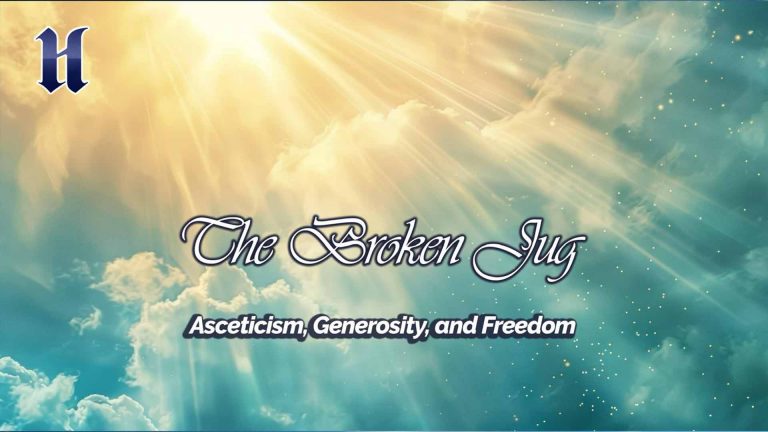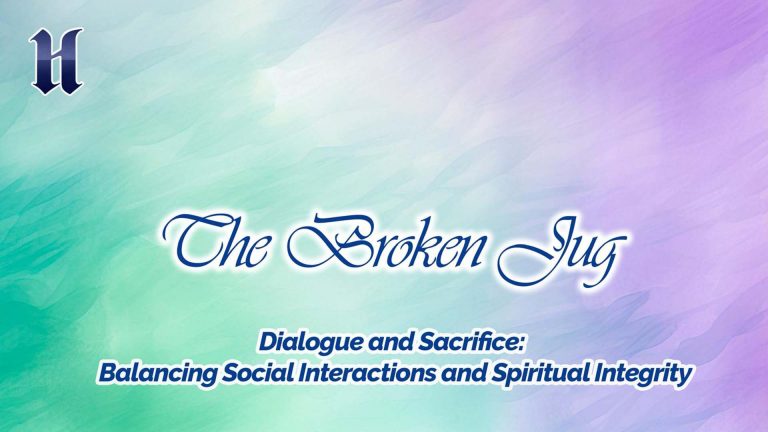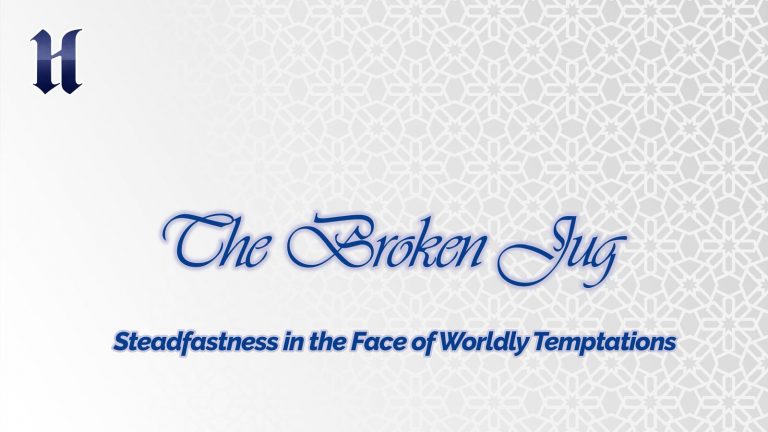İçindekiler
Question: Individuals, at different phases of their lives, often make earnest efforts to reach higher levels of devotion, particularly during auspicious days and nights. However, over time, they might grow fatigued and lose their sense of direction. The question then arises: How can one maintain and sustain their commitment to servitude?
Answer: Blessed days and nights offer significant opportunities to rekindle our fervor for servitude and connect with Divine mercy. Those who seek refuge in the radiant ambiance of these sacred moments and fully engage in worship not only accumulate abundant rewards for their acts of devotion but also undergo a profound transformation. In these sacred periods when the gates of mercy are wide open and hearts are softened, it is imperative that we introspect, genuinely repent for our errors and sins, and earnestly seek forgiveness from Allah. We should rededicate ourselves to Him, taking proactive steps toward personal transformation and renewed commitment.
Repentance and Seeking Forgiveness
Repentance and seeking forgiveness demand a sincere and resolute effort on the part of the individual. In order for one’s sins to be pardoned, they must wholeheartedly and genuinely beseech Allah with humility. They should genuinely regret their wrongdoings and firmly commit to avoiding the same sins in the future.
Nevertheless, individuals may find it challenging to uphold their commitments to Allah. They may struggle to maintain a consistent path of servitude. Temptations from the self and the devil can lead them astray, and they may inadvertently break their repentance. The journey of servitude may not always align with one’s desires. Importantly, this situation does not nullify previous repentance, nor does it prevent one from returning to the door of repentance once more.
A person who sincerely repents with a pure heart will receive the reward for their repentance in the Divine presence, as long as they maintain faith and proceed to the Hereafter with it. Repentance and seeking forgiveness are forms of worship, and what truly matters is whether they are performed in accordance with the conditions. Sins committed afterward do not invalidate the rewards of previous repentance. Allah does not disregard any act performed with sincerity and determination. Therefore, we should seize every opportunity to draw closer to Allah, turn to Him with repentance and seeking forgiveness whenever possible, and continue on our path with renewed and unwavering faith.
Preserving the Right Path
Once an individual has found the right path, it becomes crucial to exert significant effort to avoid losing it. The diligence required to preserve one’s progress should exceed the effort invested in initially achieving it. Scaling the summit is a formidable challenge, involving the conquering of steep cliffs, surmounting life-threatening risks, and demonstrating unwavering determination. However, remaining at the summit presents an even greater challenge. The key lies in maintaining a stable position there to ensure that the risks and efforts undertaken to reach the pinnacle do not go in vain. The journey of servitude parallels this analogy.
Regrettably, some individuals excel in acts of worship and devotion during the sacred month of Ramadan, for example. However, when the spiritual atmosphere that surrounds this blessed month dissipates, they deviate from the path of servitude. On the contrary, having attained the perspective of servitude, one should strive even harder to maintain their course, fervently beseech Allah through prayers, and do so with unwavering sincerity and wholehearted devotion.
A believer, through their devotion to Allah, can gradually attain certain spiritual stages. By breaking free from the dark corridors of the “nafs-i ammara” (the self that incites to evil), they can ascend to the “nafs-i lawwama” (the self-reproaching soul), and from there, to the “nafs-i mutma’inna” (the contented soul). Depending on the sincerity and determination in their servitude, they can further rise to the levels of “nafs-i radiyya” (the pleased soul) and “nafs-i mardiyya” (the well-pleased soul). In fact, for ordinary individuals like us, if that door is open, they can even reach the level of “nafs-i safiyya” (the purified soul) and “nafs-i zakiyya” (the righteous soul).
It’s crucial to emphasize that none of these stages should create an absolute sense of security in an individual. They should always live with a constant awareness that they could potentially regress from their current position. To remain unaffected by contrary influences, they must tenaciously hold on to the heights they have attained. A truly perfected believer’s faith should be characterized by the unceasing realization that they cannot stay on course without the assistance and grace of Allah. They should perpetually maintain the mindset, “Take my hand, for I cannot do it without You!” The supplications of the Prophet Muhammad (peace be upon him) reflect this sentiment: “O Living and Sustaining One! I seek refuge in Your mercy. Set right, rectify, all my affairs and do not leave me alone with my soul even for the blink of an eye!” If the Noble Prophet himself made such supplications, I leave it to your discretion to decide what individuals like us, who often stumble into sin, should say.
As human beings, it is in our nature to occasionally stumble and fall. However, one should never regard any form of sin, be it minor or major, concealed or open, as something ordinary. It’s essential to recognize that every deviation represents a kind of spiritual distortion and should elicit a sense of abhorrence towards sin to avoid becoming entrenched in that predicament and swiftly return to their Lord. On each occasion they turn to their Lord, they must be resolute in not straying again and make a commitment to Him. Failure to perceive slipping and deviation as analogous to sinking into a quagmire or struggling in the mud may lead to complacency, progressively eroding their spiritual immunity ad resilience. Over time, they may find themselves increasingly unable to resist sins. For such an individual, rediscovering their path through repentance and seeking forgiveness and sustaining their course can be exceedingly challenging.
Sterile Environments
We must exercise extreme caution to avoid contracting any spiritual microbes or viruses that can weaken our spiritual immune system, and if exposed to such a threat, we should make every effort to eliminate it promptly. This undoubtedly hinges on residing in clean and sterile environments. An essential means of ensuring continuity and persistence in servitude is for individuals to inhabit suitable surroundings where they can uphold their purity and cleanliness.
Hence, it is vital to transform our homes into sanctuaries of Divine light, focus our conversations on the Almighty Beloved, and consistently associate with the truthful ones. This approach enables us to distance ourselves from the spiritual contaminants that could poison our spiritual life and provides us with support during moments of weakness and vulnerability.
Especially in these times when succumbing to sin has become much easier, the importance of being in clean environments and associating with pure-hearted individuals cannot be emphasized enough. People may struggle to stand on their own, gradually succumb to habituation and familiarity, fail to adequately respond to the spiritual viruses they are exposed to, and may not even realize the deviations they experience over time. However, when someone is within a righteous circle, they have the opportunity to be observed by others. For instance, if they become heedless of the Divine Being, fall into negligence in their worship, become lazy, or make mistakes in their servitude, someone will come to their aid; even if they temporarily forget the gravity of their sins, they will at least feel ashamed in front of the innocent people they are with. When individuals with similar feelings and thoughts come together, they recharge, rejuvenate each other. Like the stones in an arch, when they unite, they remain steadfast and do not fall.
While individuals who act with unity and solidarity protect each other from slipping, it is highly likely that someone in a dry, desolate atmosphere where Divine mercy does not descend will be lost. Even if your relationship with Allah is very strong, standing alone can be very challenging; you could fall at any moment. That is why the Prophet Muhammad (peace be upon him) stated that there is mercy in the congregation and punishment in separation[1], and he expressed that Allah’s mercy hand is with the congregation[2]. In another hadith, the Noble Prophet advised that when traveling, one or two individuals can easily be deceived by the devil, and he emphasized the need to form a congregation of at least three people to protect themselves from sins.[3] Because, according to probability calculations, it is very difficult for three people to unanimously agree to commit the same kind of evil compared to two who might influence one another. Therefore, if we want to stay vibrant and reshape our lives, we must also create clean and sterile environments to realize this aspiration.
Intention and Goal
An essential way to avoid becoming complacent and falling into laziness is to consistently elevate the standards of servitude, devotion, and benevolent service. If we can easily attain the level we’ve set, we should raise it to a more challenging one. Once we reach that point, we should raise the bar a bit higher. In essence, we should always aim for higher goals. If we move too comfortably on a level path, we might easily become complacent.
The Qur’an uses the example of angels to inspire us to surpass our own selves and attain the ultimate level of servitude. In two distinct verses (Surah Fussilat, 41:38; Surah al-Anbiya, 21:20), it is stated that the angels continuously praise Allah day and night without ever growing weary. Our task is to aim for this. If we fix our gaze on such an objective, we will advance toward it like an arrow. Without establishing such a sublime goal, we may get ensnared in our ego and desires, perpetually revolving around them.
As widely acknowledged, humans possess diverse dimensions often described with different terms, such as the physical and metaphysical, the worldly and the otherworldly, the material and the spiritual. Despite the variations, all these dimensions ultimately converge to the same essence. The objective an individual should aim for is the development of their metaphysical aspect, transcending their worldly dimension, essentially aspiring to become angelic. This is precisely the goal highlighted in the Qur’anic verse. Following Bediüzzaman’s perspective, we can define this as the effort to rise above animality, relinquish corporeality—materialism, and embark on a journey through the realms of the heart and soul. Anyone who follows such a path and revolves around such an orbit is undoubtedly treading on a secure route and, with the permission and grace of Allah, does not lose their way. To maintain a straight path without deviation, it is imperative to establish such a goal.
Finally, it is clear that aiming for a noble objective and striving to attain an angelic state attracts the mercy and favor of the Almighty. Allah does not forsake those who set out on a path for His sake. On this journey you undertake, you will receive the backing, concern, and shelter of Allah. Indeed, you will have the support, care, and protection of Allah. You will be regarded as the guests of the Most Merciful, and it will be difficult for anyone to harm you readily.۞
[1] “Unity is a mercy and division is a punishment.” (Ahmed Ibn Hanbel, al-Musnad 4/278; al-Bezzâr, al-Musnad 8/226.)
[2] “Verily, the Hand of Allah is over the united community.” (Tirmidhi, fitan 7; Ibn Hibbân, as-Sahih 10/438.)
[3] “If three people set off for a journey, let them choose one of the as the head!” (Tirmidhi, jihad 4; Abu Dawood, jihad 86.)






